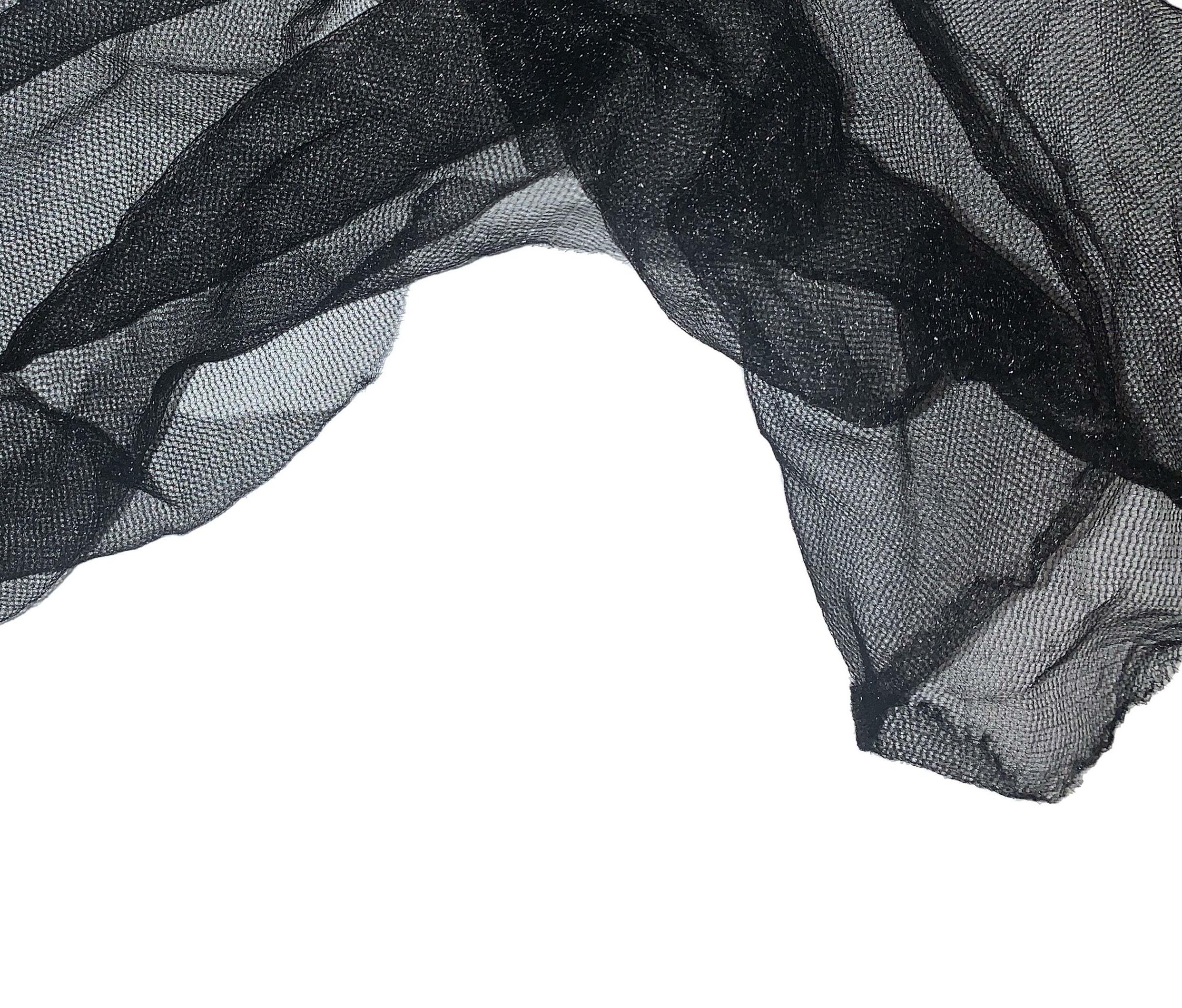
19 minute read
A Dose of Paradise
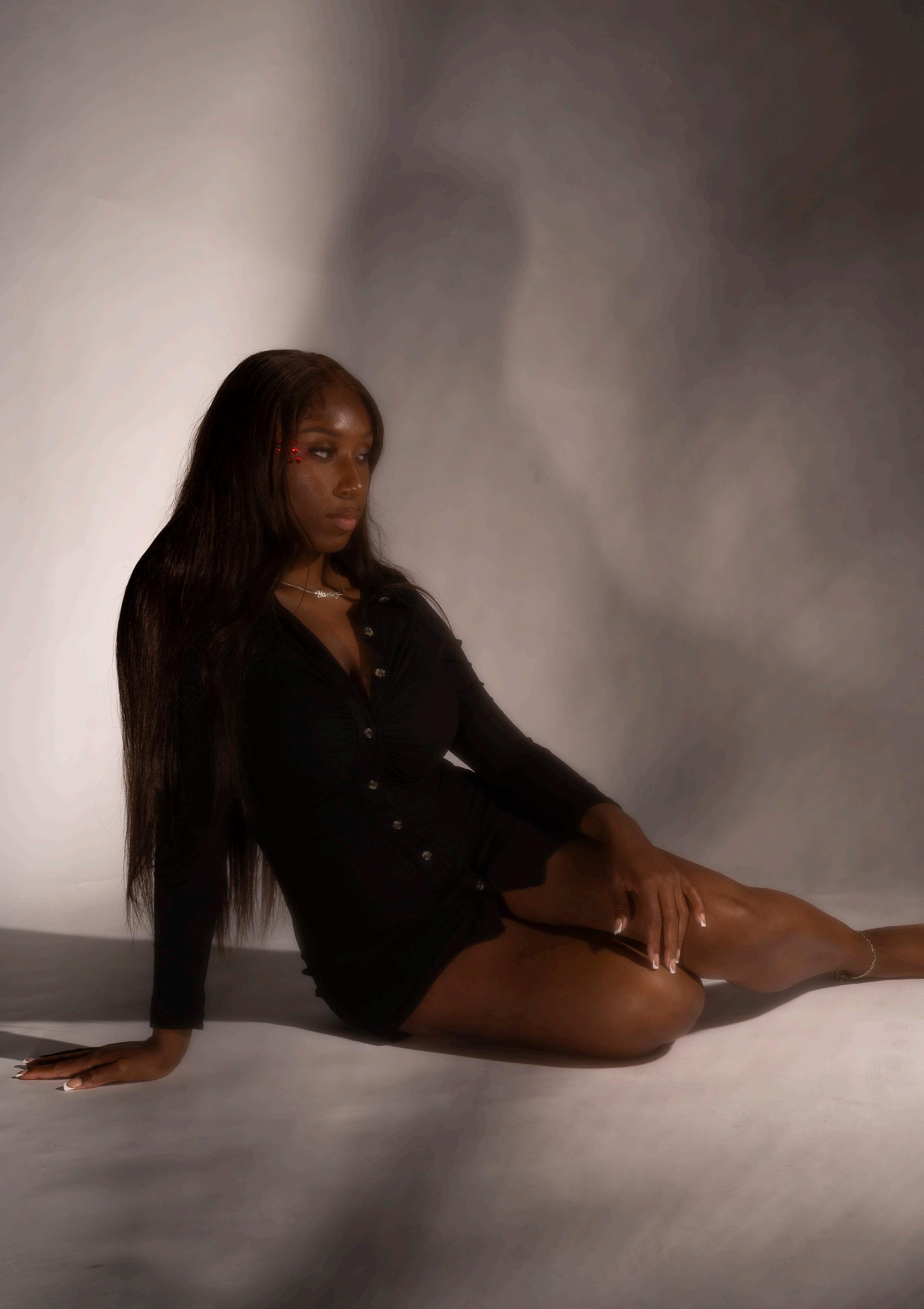
“The cadets are supposed to be really mean to you because you're going through basic training — it's like hazing. And I remember leaving sobbing, jogging away,” Yamiya notes. “I honestly don't remember what the rest of the day was like, from there. [That experience] overshadows everything.”
She mentions that during her time at the academy, her hair was “a big source of trouble.”
“You're not allowed to dye your hair an unnatural color,” says Yamiya. “My mom is a natural redhead, so I thought I would take advantage of that. [Cadets] were like, ‘You're Black … There's no way that's natural.’ And I was like, ‘Do you want me to show you photos of my mother?’’
Within the first 30 minutes of being on campus, her identity was stripped away, and now, she had to navigate both the mental and physical hazing placed upon her at the academy. The first two weeks were what Yamiya referred to as “basic training,” and they were “intense.” During her first year, she was enrolled in USAFA Preparatory School to prepare her to move up into the official academy for her second year.
Yamiya describes that everything at the academy had to be done with absolute precision. There was no room for mistakes. Because of this, she had a lot of fear and anxiety.
“First of all, you have to jog everywhere, you cannot walk anywhere. Also, you can't walk anywhere you want to, you can only jog at 90-degree angles,” Yamiya explains. “You can only jog along the wall and if you get caught not along the wall, it's bad news.”
For Yamiya, the morning routine was “absolutely terrifying.” Every detail, down to the angle of the sheets or the position of her pillow had to be perfect. “If I sleep in my bed and it's messed up, I'm getting in trouble. So, you're basically sleeping on the floor. And then, you never know what time they're going to wake you up.”
“It’s the small stuff that’s really anxietyinducing. I feel like for people that want to join the military, maybe that’s exciting for them. There are definitely people who enjoy that type of stuff, who enjoy that type of challenge,” Yamiya says. “But that wasn't the type of challenge that I was looking for.”
The world Yamiya was longing for was full of creativity and freedom. For her, USAFA was the farthest from that.
“It's supposed to be an enjoyable experience … Usually when people join the military, they are those types of outdoorsy people. I'm from a big city, I was not an outdoorsy person,” claims Yamiya. Because of feeling isolated and out of her element, Yamiya remembers feeling very angry most of her time there.
“During that time, there was a lot of anger and I was taking it out on everyone around me. I feel like you're supposed to have your squad … and they are supposed to be the people that you lean on … The point of basic training is to break you down, and then build you back up and teach you to lean on your peers … But, I was just so filled with anger that I was not leaning on them.” Yamiya recalls. “And then also, there weren’t many Black women in my squad. So I felt like they didn't understand what I was going through.”
Yamiya felt she was driven into a corner and had no one to turn to for help.
To help cope with not being in New York, Yamiya got the coordinates of the city tattooed on her arm during the first month of being at the academy. “I was definitely being very rebellious.”
Despite the troubles Yamiya faced, there were some moments when she felt like she could be herself and connect with her love of creativity, along with her culture. One part of the program was a guiding light through all of the troubles she faced — her sponsor family.
“They were a Black family … [being with them] was the only time that I really felt like I could be myself because they were for the culture,” Yamiya explains. “When in Colorado, you're not finding Black people who are really for the culture, so I became really close with them. And then, I brought all my other Black friends to their house and they ended up becoming the sponsor family for me and my two other Black best friends who were there.”
Thanks to her sponsor family, Yamiya had the opportunity to go out with her friends to the mall and movies to get away from the toxic environment on campus. Being able to leave campus reminded Yamiya of the life she could’ve had.
Breaking Free
During her second year at USAFA, Yamiya had enough. The hazing and ignorance that she experienced during her first year were still continuing after graduating from the Preparatory School — she knew in her heart she needed to break free and finally go after the life she was longing for.
Yamiya mentions that “It gets worse and worse in terms of hazing. The cadets are increasingly horrible to you.” Realizing she needed to leave in order to protect her physical and mental health, Yamiya had to let her parents in on her decision, to which they replied, “You can’t leave.”
“We end up getting into an argument on the phone,” explains Yamiya. She told her parents, “I'm leaving and there's nothing you can do about it.” Her parents replied, “If you leave, you can't come back home and you won't have any support from us.”

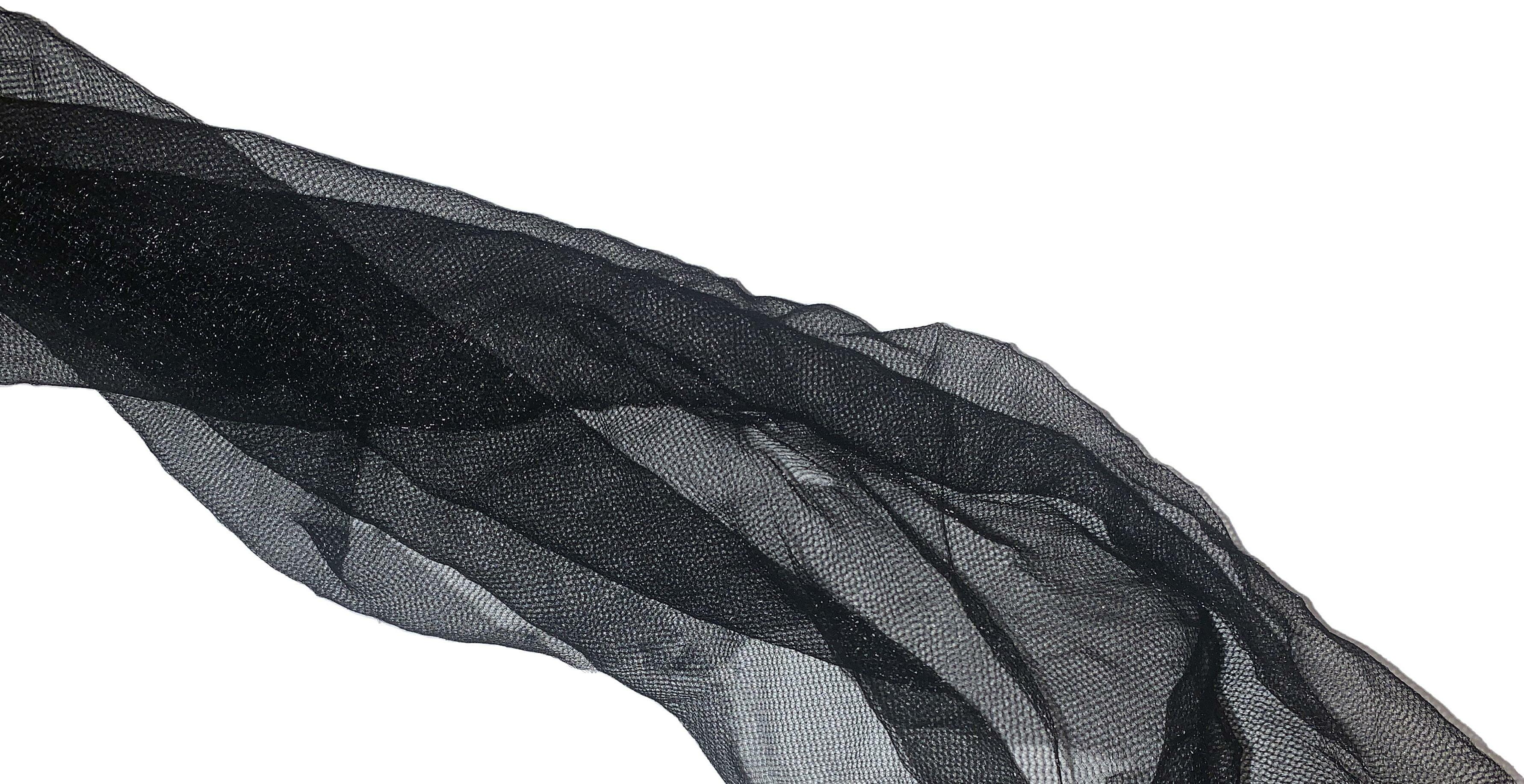
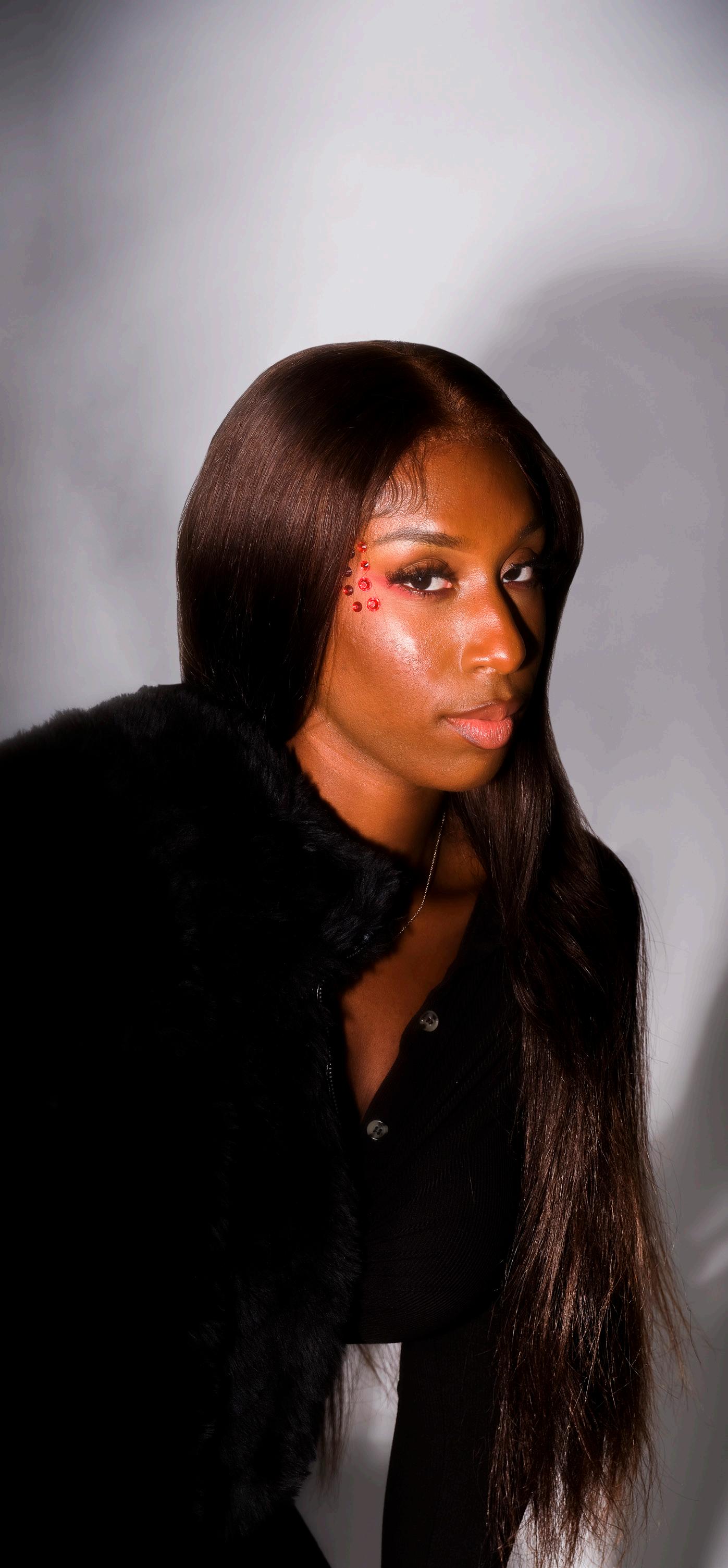
Even after hearing that, Yamiya decided to begin the process of leaving on an honorable discharge — it took months. She started the paperwork to be discharged in November 2017 and didn’t get to leave until the following year in February.
Once Yamiya finally completed all the requirements to leave, she ended up staying with her sponsor family — since, at the time, she wasn’t speaking to her parents. But, after living with them for some time, she was able to arrange her way back home. Yamiya’s father flew out to Colorado to help her move out. They decided they would road trip the way back — an experience that helped to bring them closer again. When reflecting on the trip, Yamiya says, “That's honestly one of my best memories … and then from that point on, road trips became me and my Dad's thing.”
Once back home, it was time for Yamiya to decide her next move. Since it was February, she began applying to colleges — Penn State being one of them.
She decided to accept admission to Penn State College of Engineering in the fall. Due to the way her USAFA credits were transferred, Yamiya was considered a first-year, not a third. Since being at USAFA until she was 20, she remembers having her 21st birthday as a first-year student. “It was just kind of weird, though. When I got here I told everyone I'm a junior … But in reality, I was a freshman.”
Since being discharged from the military and transferring to Penn State, Yamiya mentions she didn’t take a moment to reflect on what her future could look like. But then, she had an epiphany.
“When my parents came up for family weekend, I told them, ‘I'm dropping out of engineering. I want to go into marketing or business school.’’’ In response, her Dad said, “If you drop out of engineering, I'm not paying for your education.”
Yamiya took the frustration from her Dad’s disapproval and turned it into determination. She began to realize that just because she was studying engineering, it didn’t mean that she had to pursue it post-graduation. It wasn't easy, but she finally felt free coming to that realization. “I found myself and fought for what I wanted,” Yamiya states.
Thanks to her involvement at Penn State, Yamiya found outlets where she could explore her creativity, saying “I was happy … I was building the community that I longed for.”
“I had a friend from my middle school who was on a dance team here, Island Fever. She recruited me to the dance team because I danced growing up. [Island Fever] became my second family,” explains Yamiya. “I feel like it really helped my mental health. When I was at the academy, I was in the gutter — considering I was angry all the time.”
Nowhere Else But Up
Now in her last semester, Yamiya is set to graduate in December with a degree in industrial engineering. However, a career in engineering is not on the horizon for her. She dreams of working in a creative industry, specifically entertainment — a dream her ten-year-old self would be proud of.
Thanks to her own courage, Yamiya is flourishing. Since being at Penn State, she has earned creative internships at distinguished companies including Disney, Amazon and Pepsi. After graduation, she will be moving to Los Angeles to live in the heart of entertainment.
But, it was an uphill battle because she wasn’t studying what she loved. “I actually had a conversation with my parents a few weeks ago, where I was telling them I wish that I had stood up for myself earlier in my college career because I wouldn't be doing engineering right now.”
Though her relationship with her parents has been up-and-down, Yamiya currently describes it as being healthier than it was in the past, and that there are some things still to be worked on. “After going to therapy, I was able to start having open conversations about how [they have] affected me. I’m now able to talk to them about what I want to do in my life and now they always support me.”
Thankfully, Yamiya explains that her parents are excited about her move to Los Angeles, and after realizing how their words have deeply affected her, they have stopped being controlling over her collegiate and professional career.
One person who has always supported Yamiya throughout this time is her little sister, Miyanna. “I genuinely think she is the reason I decided I need to go after what I want,” Yamiya states.
Miyanna says she is her sister’s “number one fan” and that she admires how “driven” Yamiya is.
Throughout her six-year journey, Yamiya has had adversity thrown at her from every angle. Yet, she has kept her head up high, embodying what it means to be resilient while carving out space for what she wants on her own terms.
“There's always going to be people in your ear saying, ‘I think this would be better for you, or I think that you would excel at this’ … Only you know what you would truly be happy in.”
Study Abroad: Collecting More Than Keychains
Written by Caitlyn Garrity
Everyone and their moms are in Europe right now. Penn State students finally got the chance to travel abroad after a two-year hiatus and now, they are everywhere.
Once returned home, it can be hard to adjust and move on from that chapter. Previous study abroad students are notorious for making comments like, “Oh, well in Italy they …” or “They do it so differently in France.” We get it. You traveled abroad.
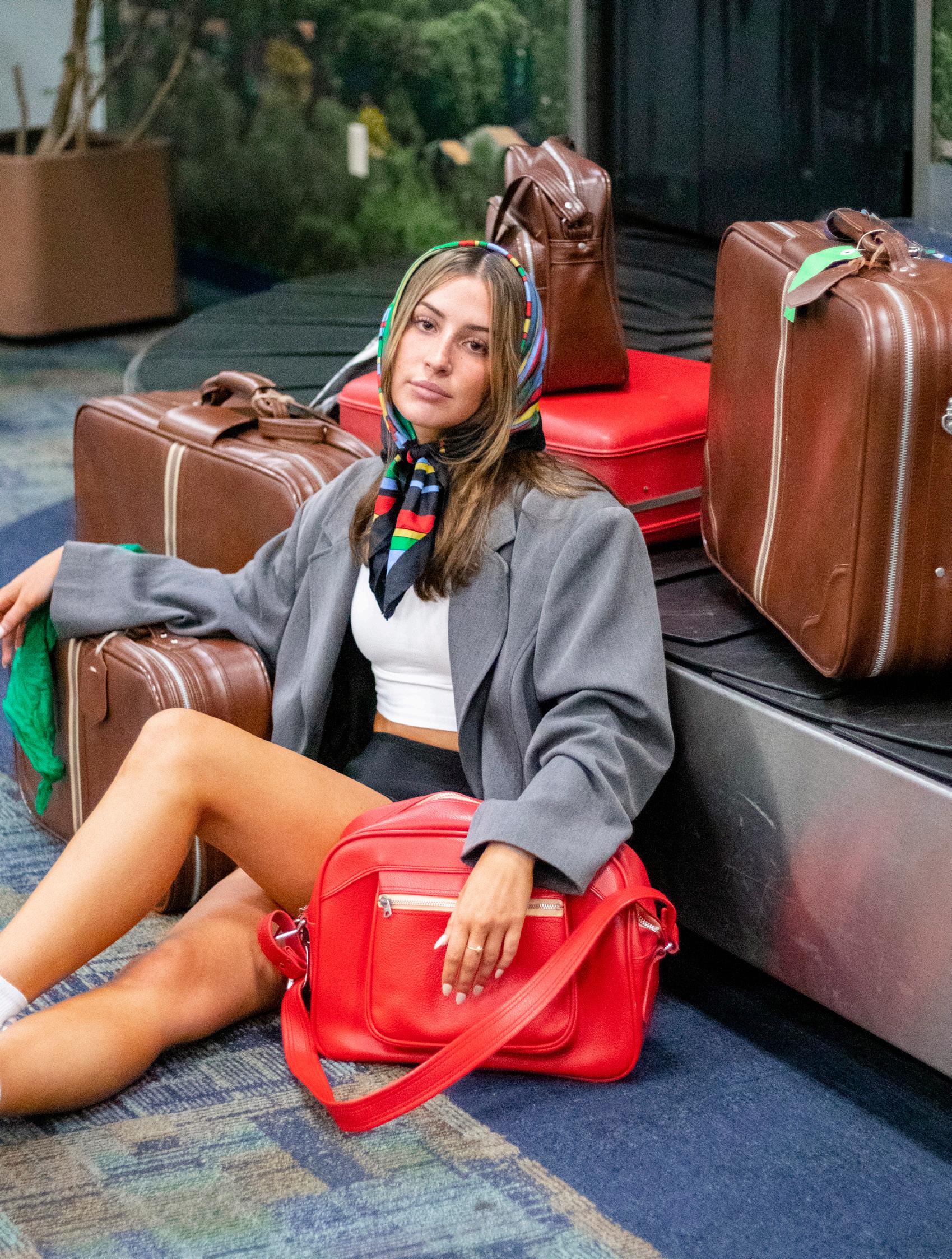
But what if these students are onto something? Traveling across seas to experience a new way of life, new cultures, new people and an entirely new environment is a classroom within itself. Developing Your Language Skills Through an Immersive Experience
Yes, you can sit in a classroom for years and be pretty good at Spanish or French, but without immersing yourself in the language, you can only get so far.. Speaking and interacting with native speakers of a language allows you to better grasp the language and learn to speak like a native.
Only around 22 percent of Americans speak another language, so knowing a second one puts you above the average American, making you a standout individual when applying to jobs.

Pro tip: Try to learn the language of your new home country. Not only will it make navigation and life easier to understand, but knowing the language bridges the gap between you as an American and the locals. Locals have been known to be more gracious and generous with advice, tips and even recommendations if you can speak to them in their native tongue.
Understanding and Appreciating New and Different Cultures
Going abroad can be difficult at times — you will run into cultural habits that you don’t quite understand. Countries, cultures, tribes and other identities, each have unique set of rules, customs, food and other things.
For example, in France, smiling and making eye contact with strangers is a way of flirting, not being nice. So, while a lot of people who’ve never immersed themselves in French culture think the French are rude, it’s simply a different custom than what we are used to.
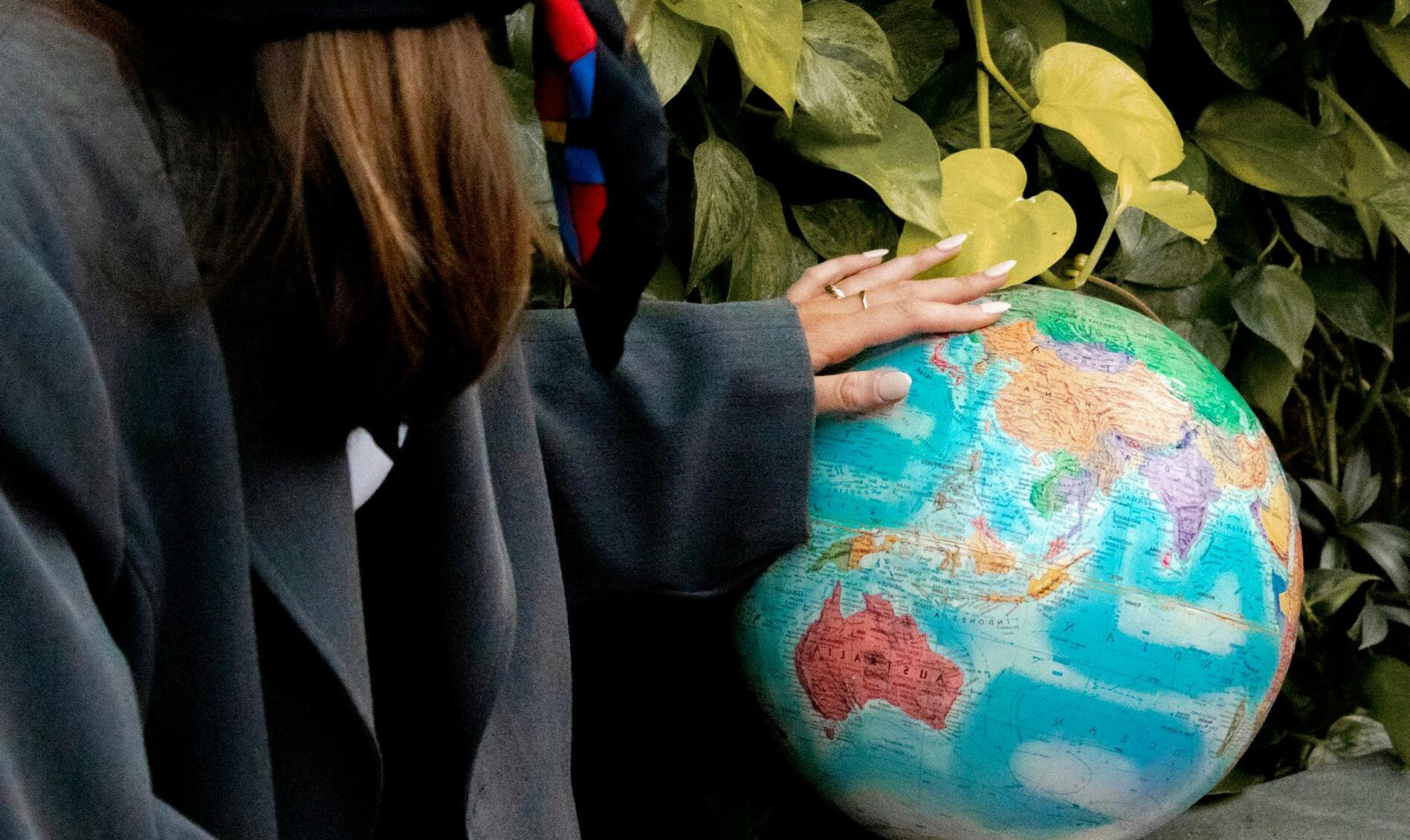
While it might be weird and uncomfortable to follow a new cultural custom, it’s how we as humans can begin to understand and connect with people all around the globe, no matter what our differences are. For fourth year supply chain student, Derek Answini, who studied abroad in London and Rome this past spring, navigating differing cultures was an impactful aspect of his experience.
I got to travel to Morocco and took a day trip to a nearby village in the Ourika Valley. People there have to hustle for every dollar they make. It's a very poor area and the way of life of the village is something I have never seen before.”
Navigating the World on Your Own
No matter what your experience has been like at Penn State, being in college forces you to take steps into navigating adulthood independently. Studying abroad forces you to navigate an entire new environment on your own, a more intense experience than simply going to college in the states.
“Studying abroad has taught me about navigating the land and customs of new cities in very short time frames and being able to try new things without fear of judgement because of the lack of familiar faces,” said Emma Doyle, fourth-year corporate innovation and entrepreneurship student, who is currently studying in London.
This newfound independence can be scary at times, and you might go through intense feelings of homesickness and culture shock, but by pushing through the experience, you will be stronger and more capable to take on the difficult challenges life gives you.
Heather McCoy, the Director of Undergraduate Studies and French professor, students dealing with homesickness to “limit time spent on Facetime and texting their family back home, as that can make it worse.”
“Engage in activities in your host country that will reconnect you with your purpose for study abroad,” McCoy says.
The Benefits of Studying Abroad Don’t End When You Walk Off the Plane
According to studies from IES Abroad, 87 percent of people said studying abroad influenced further educational opportunities and 76 percent said they learned skills that influenced their career path.
McCoy has seen this pay off with her own eyes. “Oftentimes, students will change the course of their academic program based on their experiences abroad,” McCoy says. “Having a semester away can help students fine tune their interests and engage in personal growth; they return to campus with a greater sense of purpose.”
It's no secret studying abroad is one of the greatest gems college has to offer. From language learning, to academic opportunities to expanding your understanding of cultures, the benefits to studying abroad are worth every cent.
So go out there, hop on a plane and let the world become your classroom. There are places on Earth that want to teach you things you didn’t know you ever needed to learn.
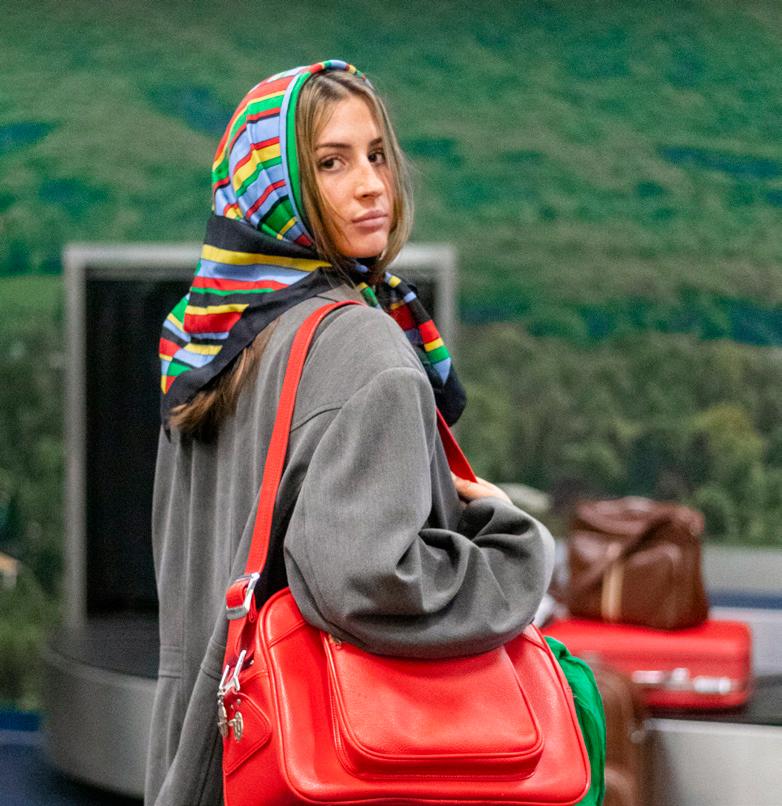
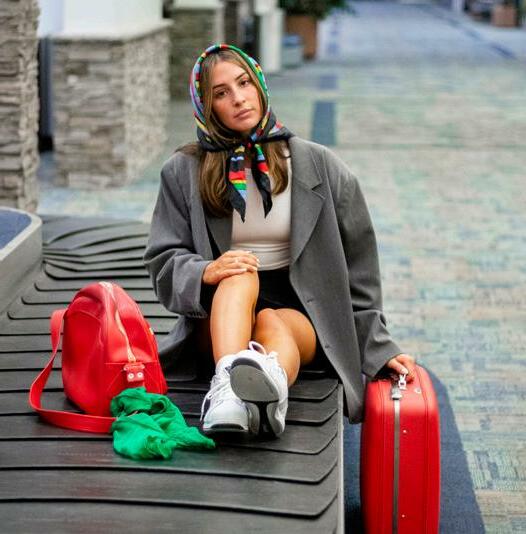
Photography by Sarah Jane Aldrich & Sara Bobulinski
PSU is for lovers:
EXPLORING ROMANCE AS A MINORITY AT A PREDOMINANTLY WHITE INSTITUTION
Written by Caroline Diaz
Content Warning: Mentions of racism, discrimination & micro-aggression
It’s a well-known fact that Penn State is a school that can be considered a predominantly white institution, better known as a PWI. This means that over 70 percent of our school’s population identifies as white or caucasian. Another demographic in the minority? Penn State’s population of queeridentifying students.
At a large party school like ours dominated by Greek life and tradition, it’s easy for students in the minority to find that they struggle to find romance.
Five students open up about their experiences navigating the hookup and dating scene at Penn State as minorities — the good, the bad and the ugly. Though minority students can often feel discouraged to put themselves out there, there may be a light at the end of the tunnel.
Nevaeh: “They always remember the brown girls.”
Nevaeh Grinnage, 21, was raised in suburban Reading, PA. At Penn State, she’s a member of Sigma Delta Tau and Eclipse. Grinnage holds pride in her multicultural background — she identifies as Black, German, Native American, Colombian and Peruvian. Her type? “All my friends make fun of me for thinking Pete Davidson is hot,” says Grinnage.
Upon entering Penn State’s dating pool, Grinnage reflects on her challenging experience in a not-so-diverse social space.
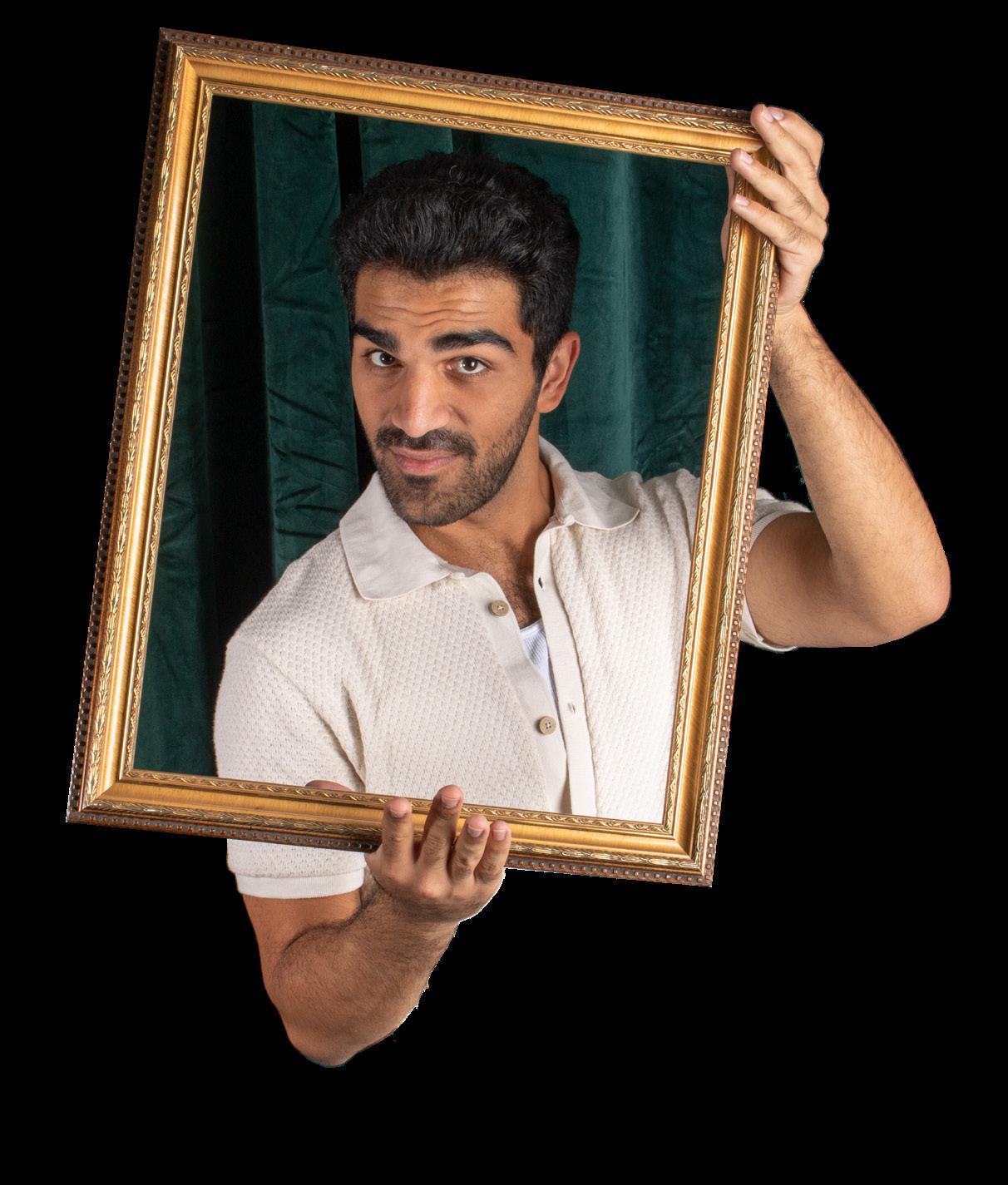
Like so many college students, Grinnage downloaded Tinder and would visit the app as frequently as she did Instagram. Her matches would often praise her for her “unique” looks and though she was flattered, she believed they were only paying her compliments in exchange for hooking up. Typical. When it comes to hook-ups, Grinnage has found that when she meets a man of color, she’s asked a lot more about her background than she would be from someone who is white. Out of the fear of being fetishized, at times she is apprehensive to pursue white male students, even if she finds them attractive.
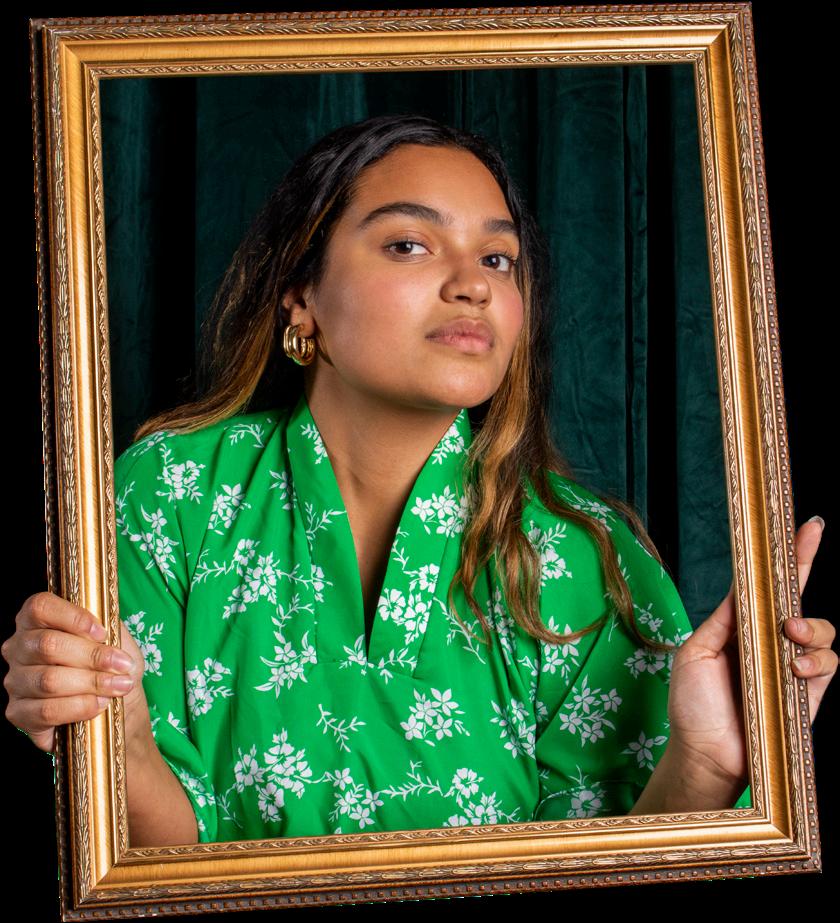
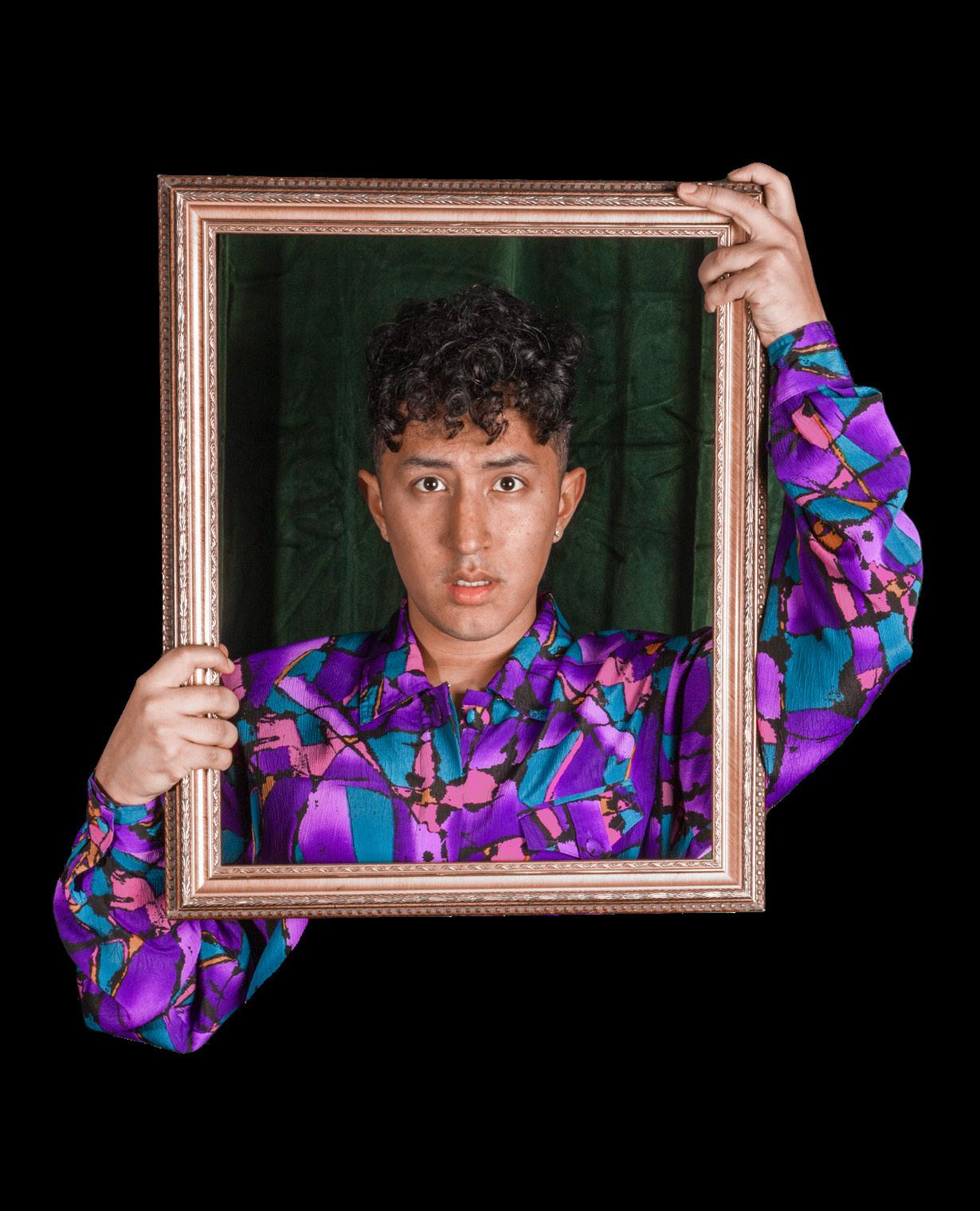
While Grinnage isn’t actively looking for anything exclusive any time soon, she wouldn’t be opposed to joining in on the upcoming cuffing season and enjoying someone’s company. Despite having moments of discouragement, a family friend of Grinnage’s, a Penn State alum, once told her what she referred to as ‘life-changing advice’ — “they always remember the brown girls.”
Penn State senior Ryaan Farhadi grew up in Northern Virginia with Afghan and Iranian parents, and studies musical theater here in Happy Valley.
Farhadi says how being in predominantly white spaces all his life has shaped his outlook on romantic relationships.
Just like Grinnage, Farhadi finds that it’s easier to find commonality with other people of color in a predominantly white environment, and he often feels a sense of comfort in meeting other people of color at a bar.
When it comes to entering something more serious, Farhadi says the talking stage becomes significantly more seamless once you’ve bonded over your cultural background. “I think that makes furthering the relationship a lot more feasible.”
Like Grinnage, too, Farhadi’s excitement finding romance with a fellow person of color is not an anomaly. It’s fairly common that POC tend to find more in common culturally with other POCs — even if they do not identify as the same race. Of course, interracial relationships are a beautiful thing and should be celebrated, but there is a reason why we as humans tend to stick to those who remind us of who we love most — ourselves.
Farhadi says being a musical theatre major was the best thing that could’ve happened to him in terms of finding his people here in State College. “The MTs are a beautiful and diverse group and I’ve found some of my best friends there.” Farhadi isn’t the only one who has found that the tight-knit musical theater community at Penn State uplifts queer and POC students alike. Being in the School of Theatre has introduced Farhadi to so many students with similar backgrounds, however, he doesn’t like to start anything romantic with anyone in his musical theater family.
Upon graduating this upcoming spring, Farhadi is excited to move out of State College and explore a more diverse dating scene for the first time. “I don’t plan on leaving school with the love of my life, but I’m optimistic that if something is meant for me then it will still be a part of my life once I’ve graduated,” Farhadi says.










